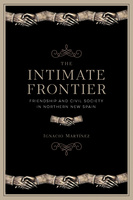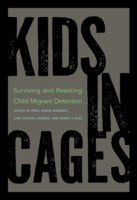The University of Arizona Press is the premier publisher of academic, regional, and literary works in the state of Arizona. They disseminate ideas and knowledge of lasting value that enrich understanding, inspire curiosity, and enlighten readers. They advance the University of Arizona’s mission by connecting scholarship and creative expression to readers worldwide.
The Continuous Path
Pueblo Movement and the Archaeology of Becoming
Savages and Citizens
How Indigeneity Shapes the State
This work takes the provocative view that Indigenous people have been fundamental to how contemporary state sovereignty was imagined, theorized, and practiced. By tracing indigeneity from European philosophers conceptualizing sovereignty during the Enlightenment to Indigenous President Evo Morales in Bolivia, this volume offers new analytical tools to explore indigeneity in contemporary world politics.
Latin American Textualities
History, Materiality, and Digital Media
Cold War Anthropologist
Isabel Kelly and Rural Development in Mexico
This book explores the changing nature of U.S.-Mexican relations, development programs, state efforts of assimilation, the field of anthropology, and gendered experiences in mid-twentieth-century Mexico through the international work of Dr. Isabel T. Kelly (1906–1983).
The Intimate Frontier
Friendship and Civil Society in Northern New Spain
Racial Alterity, Wixarika Youth Activism, and the Right to the Mexican City
Kids in Cages
Surviving and Resisting Child Migrant Detention
This book provides an interdisciplinary perspective of child migrant detention by bringing together voices from the legal realm, the academic world, and the on-the-ground experiences of activists and practitioners. The chapters explore the harms of detention while also looking at survival in and resistance to this violent institution.
Caracoleando Among Worlds
Reconstructing Maya Worldviews in Chiapas
This book focuses on the analysis of the contemporary literary movement of Maya writers of Chiapas. At the heart of this examination is a journey into the trajectory of this literary movement and its connection to the Zapatista Army of National Liberation (or EZLN) insurgency. This work shows two movements that are rooted in shared visions of rescuing, reclaiming, and recentering Maya worldviews.
Hopis and the Counterculture
Traditionalism, Appropriation, and the Birth of a Social Field
This book addresses how the Hopi became icons of the followers of alternative spiritualities and reveals one of the major pathways for the appropriation of Indigenous identities that exploded in the 1960s. Exploring the new social field that developed to spread these ideas, the book documents the biographies of Ammon Hennacy, Craig Carpenter, Frank Waters, and the Firesign Theatre, among others.
The Global Spanish Empire
Five Hundred Years of Place Making and Pluralism
The Global Spanish Empire tackles broad questions about indigenous cultural persistence, pluralism, and place making using a global comparative perspective grounded in the shared experience of Spanish colonialism. Through an expansive range of essays that look at Africa, the Americas, Asia, the Caribbean and the Pacific, this volume brings often-neglected regions into conversation.











